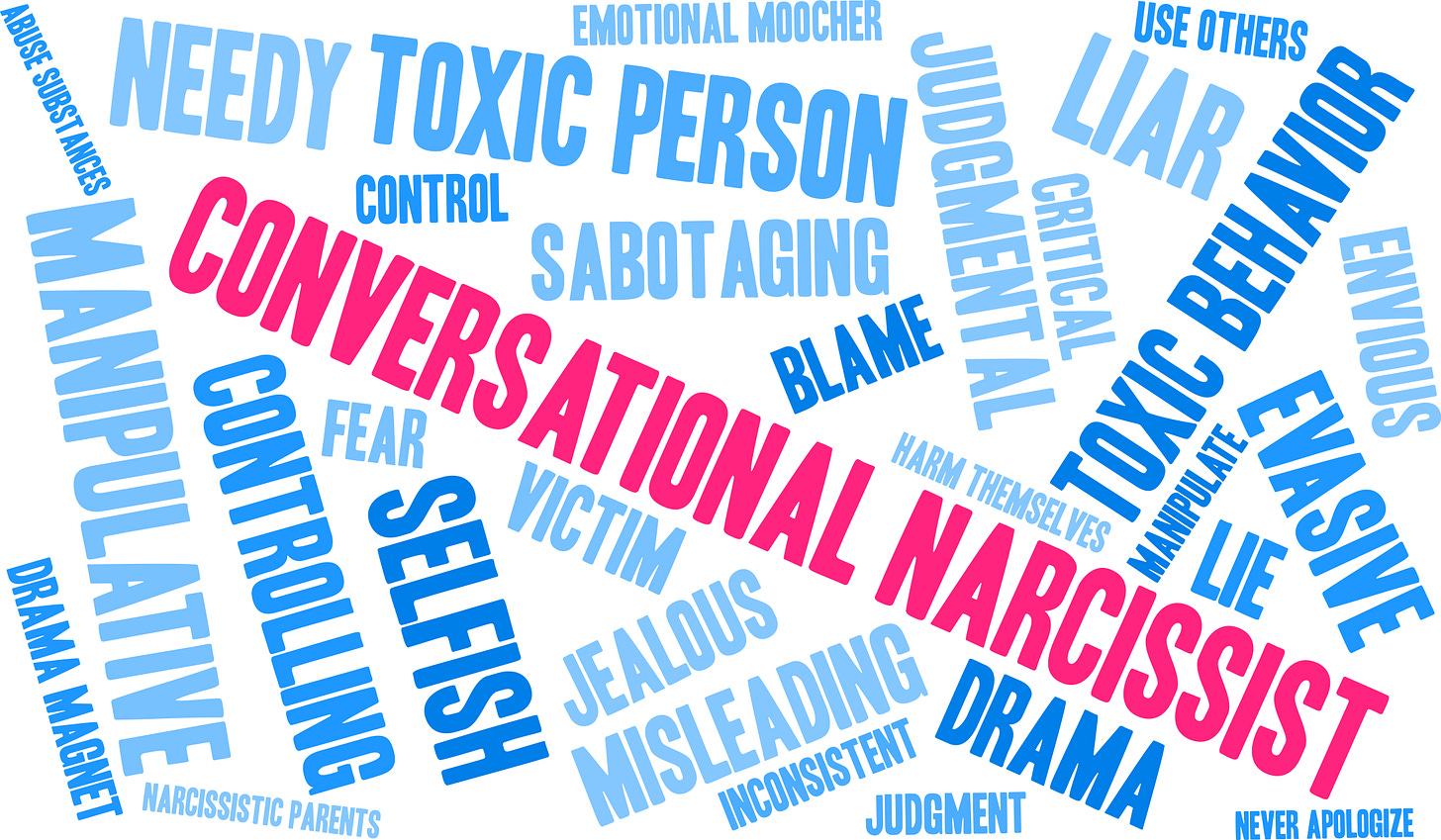Hijacked! When Every Conversation Turns Into Theirs
Why some people can't stop interrupting (and how to deal with it!)
There's always that person.
You're in a conversation. Maybe you're finally getting to the heart of something. Then, out of left field, the whole convo gets hijacked. Sometimes it's with words. Sometimes, it's that person's phone shoved in your face. A picture. A meme. A TikTok. You know, something they just HAVE to show you? Suddenly, it's not about the conversation anymore. It's all about them.
This happens more than you think, and the hijack isn't always aggressive or obvious. Sometimes it's wrapped in a well-meaning "Oh, that reminds me…" Sometimes it's even a bit stealthy, "Have you seen this?"
Cue phone screen. And just like that, your moment is gone.
This is more than just an interruption happening. It's called conversational narcissism. One psychologist defines a conversational narcissist as "…someone who constantly turns the conversation back to themselves, monopolizing the discussion and disregarding the thoughts, feelings or interests of others." It's when people hijack conversations either verbally, visually, or both, thus steering said conversation deliberately or unconsciously back to themselves.
Why do people do this?
Insecurity: They need attention or validation. Sharing their thing feels like proof they matter.
Lack of Awareness: They don't realize they're steamrolling the moment. They're not reading the room or noticing the rhythm of the conversation.
Control or Habit: Some folks are just used to being the main character. If they're not in the spotlight, they move the spotlight.
Anxiety or Discomfort: They may not know how to stay in someone else's story, so they panic and revert to their own.
In some cases, it's a social blind spot. In others, it's a need for control, approval, or possibly even a dopamine hit. That constant desire to "share" something isn't always about sharing. It's about redirecting attention to themselves!
When someone shifts a conversation like this, and does so repeatedly, it sends the message that what they have to say (or show) matters more than what the other is saying. That wears people down. It's annoying but worse, isolating. It makes those others feel unseen and marginalized.
Here's a short list of steps to keep conversations from getting hijacked.
1. Pause. Don't Match Their Energy.
Let them do their thing. But don't reward the behavior by piling on or laughing out of obligation—pause. Give it a beat. Let it breathe.
2. Refocus the Thread.
Bring it back with a light touch:
"Anyway, back to what I was saying…"
"That's cool—Karen, I think you were making a point?"
You're not ignoring them, you're refocusing the group.
3. Use Questions to take back control.
If someone hijacks visually (showing a phone), you can redirect with a question:
"Nice—how does that tie into what we were saying?"
"Mind if we circle back for a sec?"
It cues a reset without sounding harsh.
4. Call it out.
If it keeps happening, consider a side conversation:
"Hey, I notice sometimes we switch topics fast—just flagging it because I want to stay on track when we talk."
No blame. Just awareness.
5. Set a Boundary.
When someone interrupts to show you something off-topic, it's okay to say:
"Let me finish this first, then I'd love to see it."
You're prioritizing the moment without being dismissive.
Conversation is about presence. When people butt in with their photos, their stories, their interruptions—it's not just rude. It's a refusal to be present with you. And while we all slip into this sometimes, others have taken up residence there.
The goal isn't to shut anyone down. It's to make space for actual exchange. That means recognizing when a conversation gets hijacked—and having the tools to guide it back.
Because being heard matters. Being seen matters. And so does staying in the moment you're trying to build.

